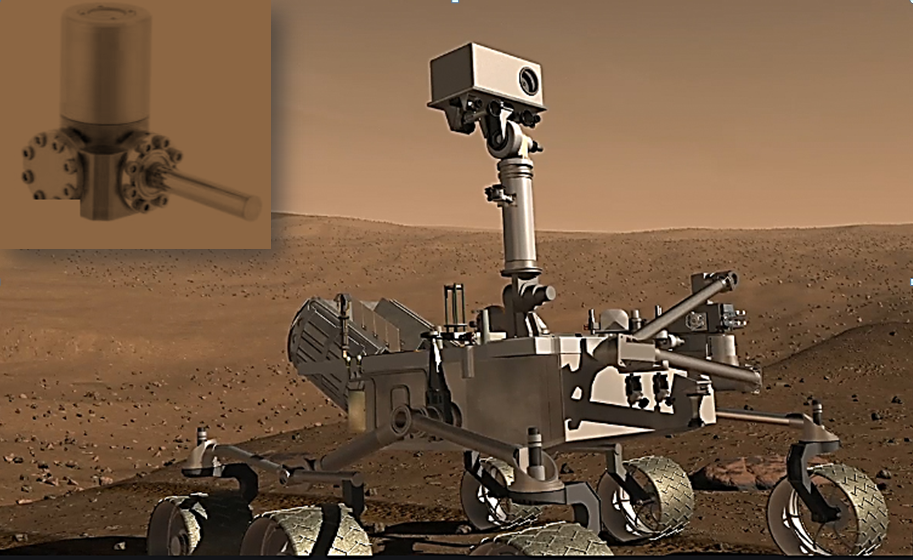MSL/CheMin Cryocooler System Requirements and Characterization Tests (2009)
Back to Innovation
D.L. Johnson, B.C. Carroll and R.S. Leland
Jet Propulsion Laboratory, California Institute of Technology, Pasadena, CA 91109
ABSTRACT
The Chemistry Mineralogy (CheMin) instrument is being built for use on the Mars Science Laboratory (MSL) to make precision measurements of mineral constituents of Mars rocks and soil. The instrument uses a commercially available Ricor K508 Stirling cycle cryocooler to cool a CCD to 173K to make X-ray diffraction spectroscopy measurements.
The Mars surface environment provides a unique and challenging thermal environment for the instrument and the cooler. The primary atmospheric constituent is carbon dioxide, which adds a conductive/convective load on the cooler, and which will freeze out on the cooler and detector if operating too cold. The MSL rover provides a thermal surround for the payload instruments that maintains the thermal environment between -40oC and +50oC. The CheMin instrument will operate during the Mars evening when the ambient temperatures are minimum; and for a limited number of hours each evening due to the energy limits on the science instruments. The cooler therefore will be subjected to many power cycles during the mission.
The Ricor K508 cooler has been flown on several space flight missions in the past, however the present CheMin version of the cooler drive electronics has not. CheMin plans to fly the cooler and its electronics as built; it therefore requires ample testing of the cooler to verify the robustness of the mechanical cooler and the electronics.
This paper presents the CheMin instrument cryogenic configuration and the extensive cryocooler characterization and qualification test program to validate the cooler capability to satisfy the instrument and MSL reliability requirements.





